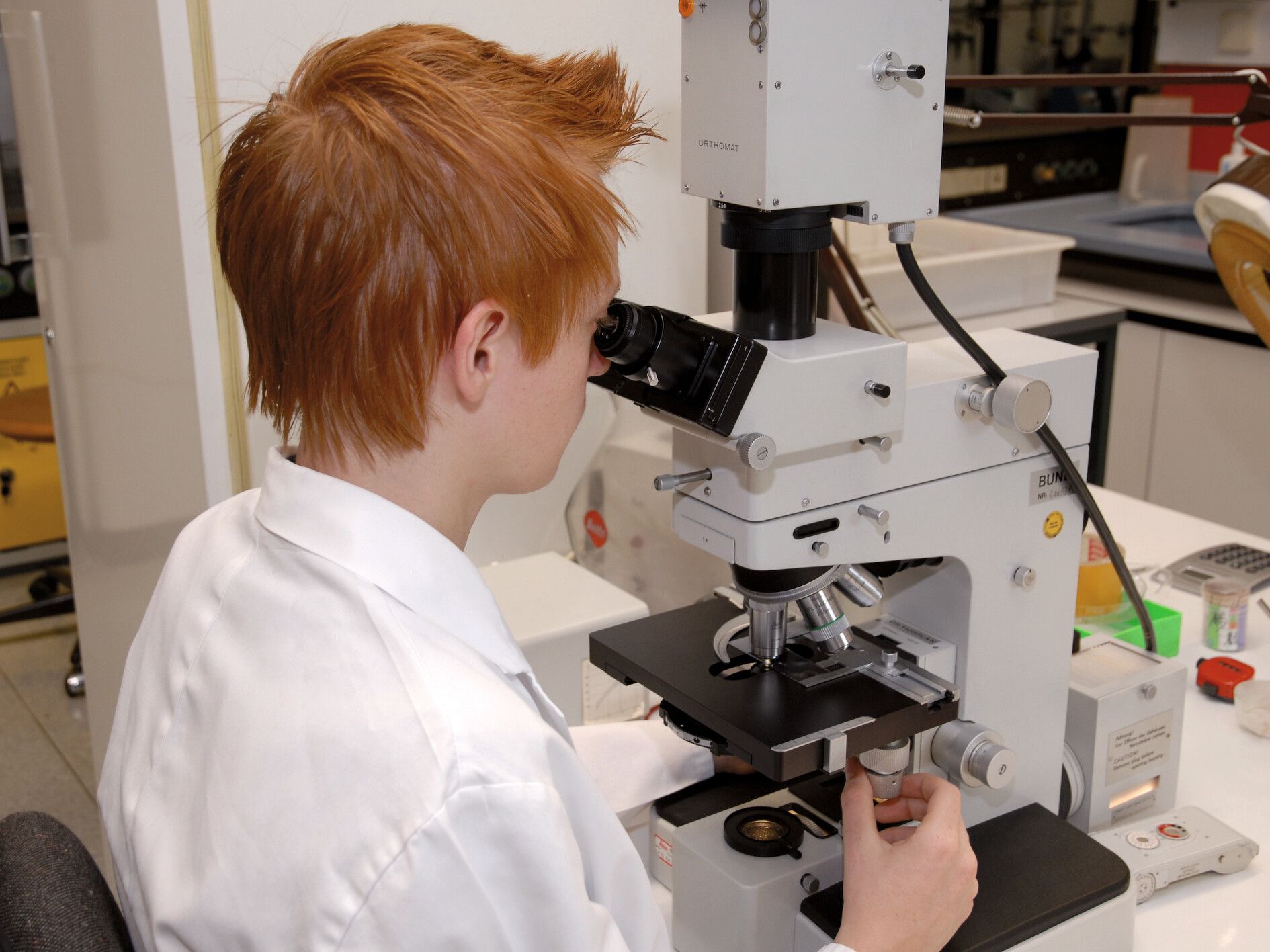Applied natural sciences
How can maths, physics, chemistry, biology or computer science advance technological or medical development? This is the question that students in the Applied Natural Sciences programme focus on.

Overview of the academic discipline
Solving problems from the field of application with the help of scientific knowledge is at the centre of this field of study
Graduates are particularly active in development and research and work closely with engineers.
Which topics are included in the curriculum?
The strongly research-oriented degree programme initially teaches broad-based scientific knowledge, which is later deepened with a high level of application. In addition, students learn methods such as data collection and analysis, media and social skills as well as English. Sustainability topics are also increasingly considered in the degree programmes. On the ‘Applied Natural Sciences’ degree programme, students receive a basic education in all natural sciences. For those who wish to specialise, this field of study also offers more specific courses such as ‘Applied Biology’. The Master's degree programme offers a more in-depth specialisation.
What are the requirements?
A good basis for a successful course of study in this field is knowledge of the following school subjects: Maths, biology, chemistry and physics, English and computer science.
Interdisciplinary thinking and the ability to work in a team are also important skills.
What study programmes are there to choose from?
There are degree programmes at universities, universities of applied sciences and dual universities. The programmes on offer range from ‘Applied Natural Sciences’ to ‘Natural and Social Sciences’ and ‘STEM: Mathematics, Computer Science and Natural Sciences with Applications in Technology’. Bachelor's degree programmes in applied natural sciences are usually admission-free, but may be subject to local admission restrictions.
What job opportunities are there after graduation?
Graduates work at the interface between research, development and technical application. For example, they work in relevant departments in the private sector, for public authorities such as environmental agencies, for clinics, institutes or laboratories and at universities. To work at universities, at least a doctorate is required.
Graduates also work as experts for research contracts, as data analysts in the banking and insurance industry, in the education sector or as science journalists.
